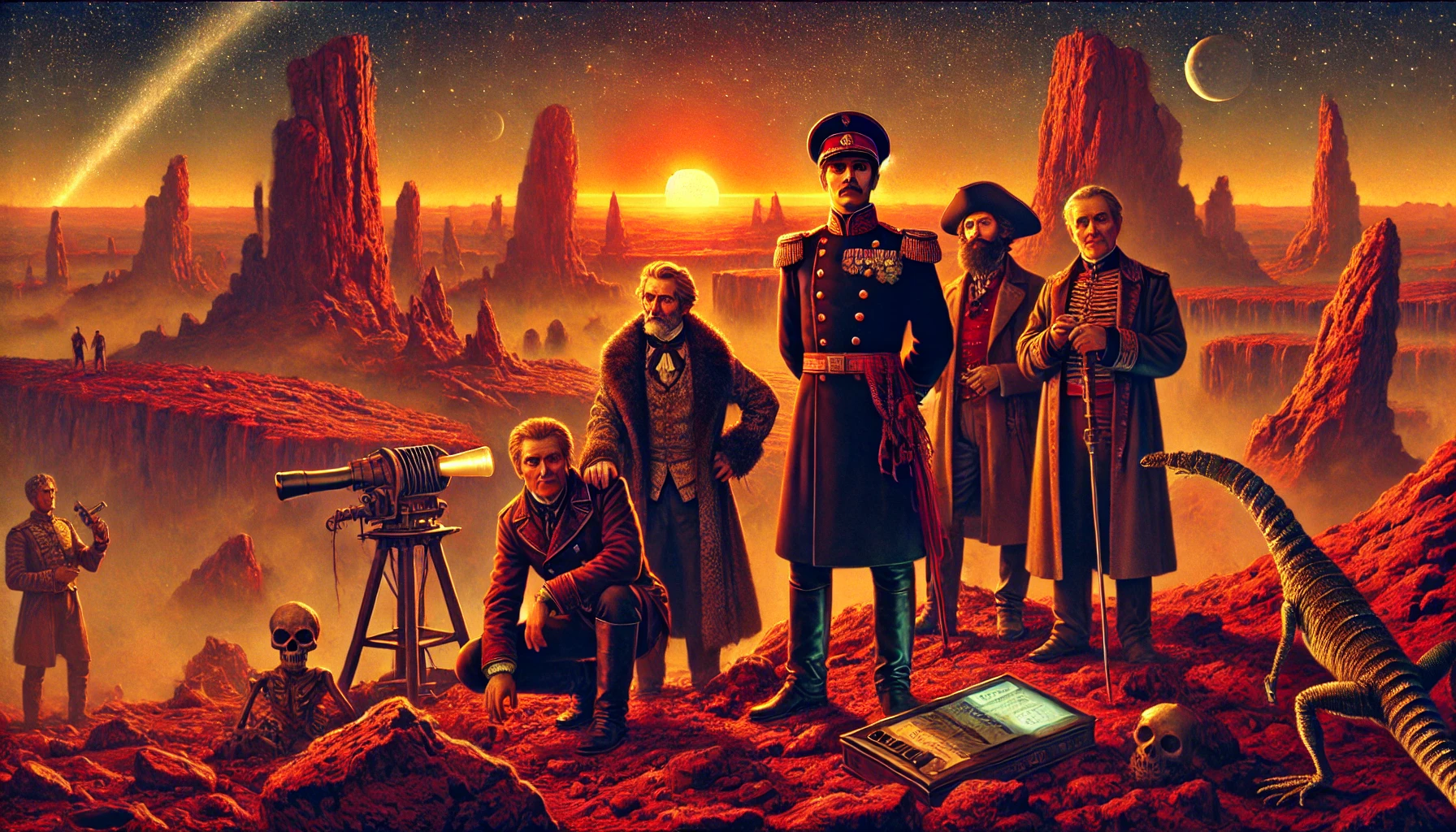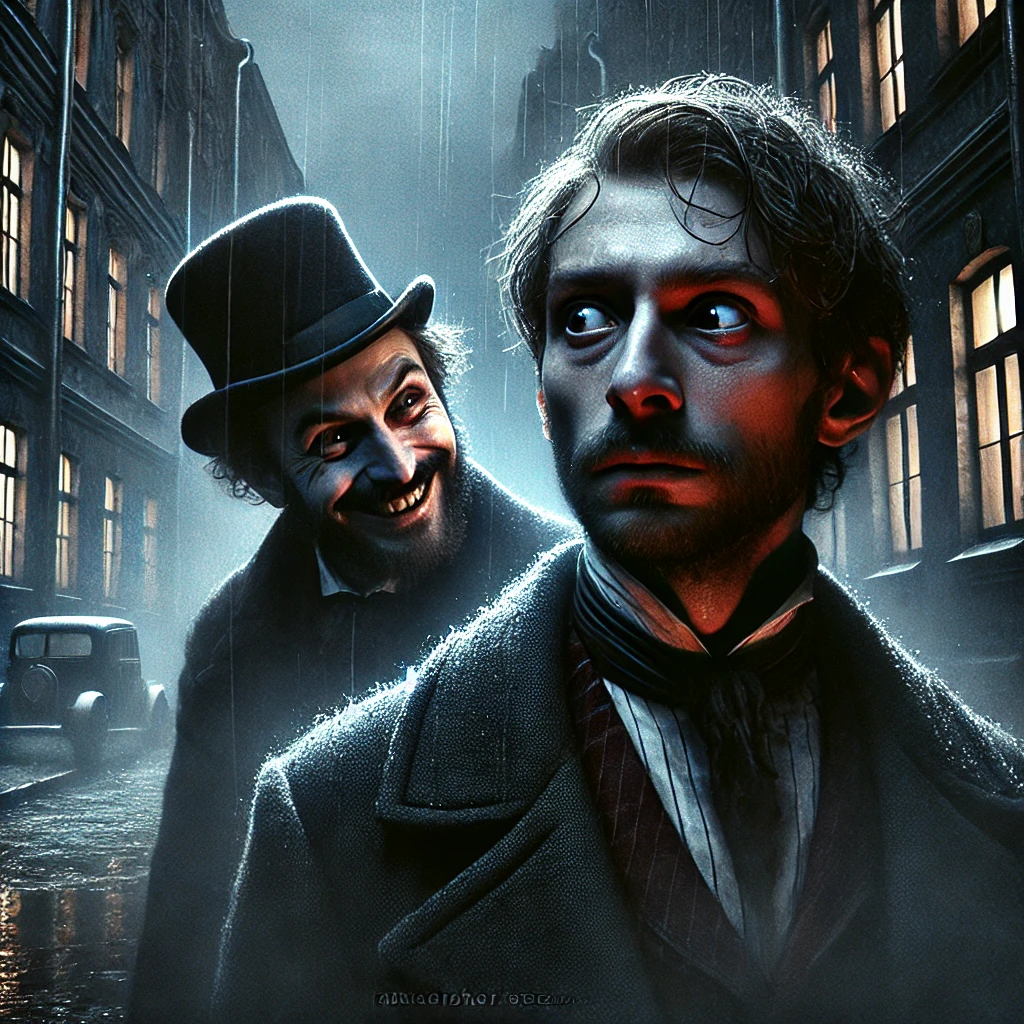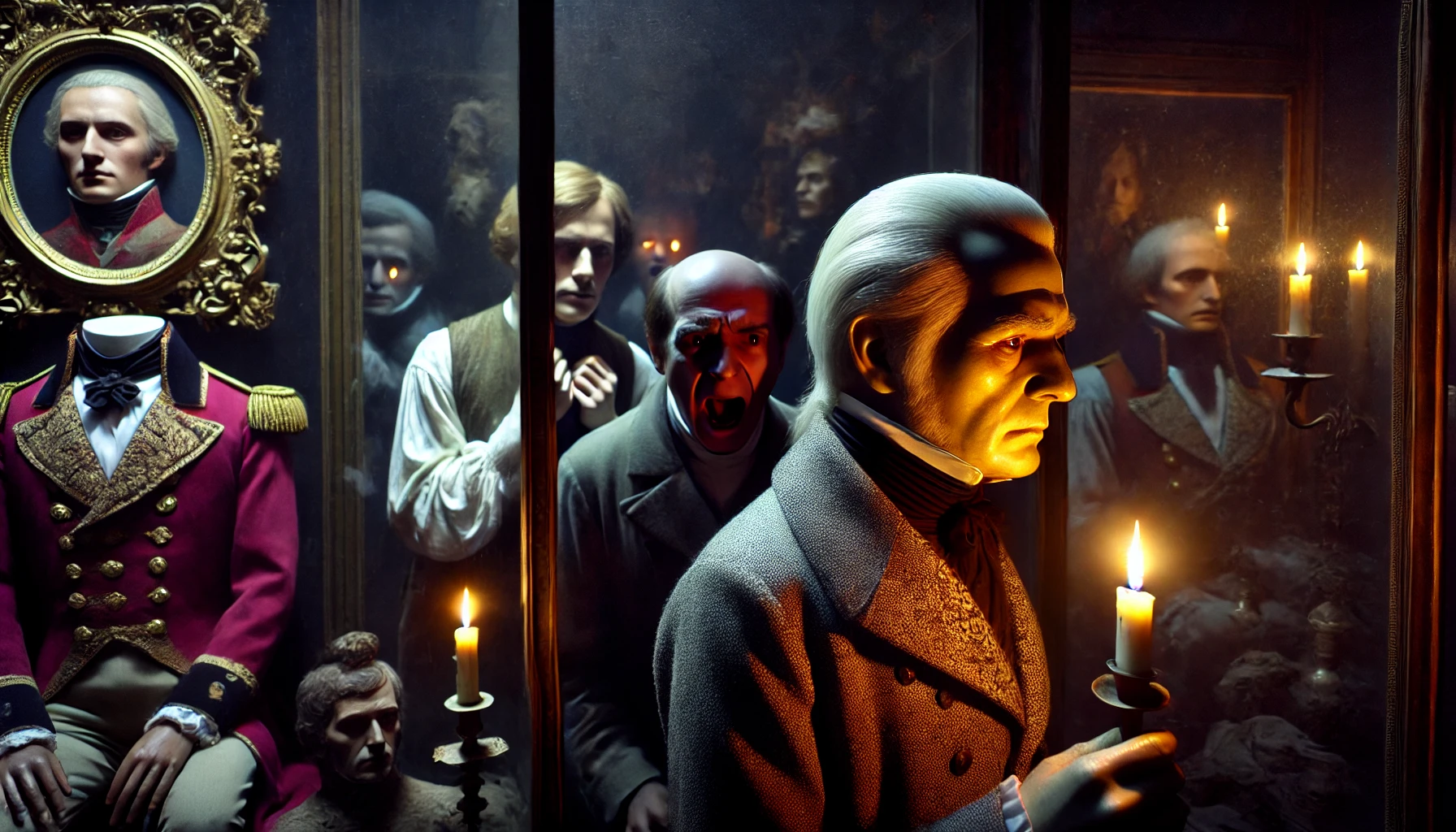Notes from the Underground by Fyodor Dostoevsky was first published in 1864. This work is considered one of the foundational texts of existential literature and showcases the philosophical turmoil that characterizes much of Dostoevsky’s work. Written in the form of a monologue by a bitter and isolated narrator, it explores themes of free will, suffering, and human contradiction, encapsulating the psychological complexities of the human condition.
Plot Summary
In the dim, suffocating corners of a small room in St. Petersburg, a man, forty years old, lies awake, tormented by his thoughts. He has long since retired from his petty government job and has withdrawn from the world, living in a self-imposed exile. He calls himself the “Underground Man,” a label that perfectly encapsulates his bitterness, isolation, and defiance against society. He is a man plagued by contradictions, acknowledging his spite and his insignificance but reveling in his ability to think and reject the very norms others abide by.
This man is intelligent, too intelligent for his own peace of mind. His consciousness is not just sharp; it is overdeveloped, leading him to perpetual paralysis of action. “To be overly conscious is a disease,” he insists. He loathes the rationalists, the men who believe that human behavior can be explained through reason and rules. For him, the ultimate assertion of his freedom lies in rejecting reason, in choosing the irrational, the destructive. He mocks the idea that twice two must equal four. What if he prefers it to be five? That, he says, would be his will, his way of asserting his humanity in a world that worships logic and progress.
The Underground Man reflects on his past, haunted by memories of his days in the civil service. He recalls his sadistic pleasure in mistreating petitioners who came to his office, particularly when he had the chance to make them uncomfortable or unhappy. His bitterness seeps into every interaction. He especially detests an officer, a man he encounters regularly on the streets, who embodies everything the Underground Man resents: self-assured, successful, and physically imposing. For years, he obsesses over this officer’s nonchalant way of brushing past him on the street. The thought consumes him, and he plots a confrontation, one in which he imagines asserting his dignity and forcing the officer to recognize him.
He finally devises a plan. He will bump into the officer in the street, forcefully and deliberately, to prove that he is not invisible. But when the day comes, his courage falters. He rehearses his act of defiance repeatedly but backs out each time. Finally, one day, they collide, and to the Underground Man’s shame, the officer doesn’t even acknowledge him. The moment, rather than vindicating him, leaves him feeling even more insignificant, reinforcing his perception that he is nothing—a mere shadow passing through life unnoticed.
As time goes on, his desire for human interaction, however painful, drives him to reconnect with old acquaintances, Simonov and a few other former schoolmates. These men tolerate him at best, yet he invites himself to a dinner they are planning in honor of Zverkov, a boisterous, successful man he despises. Zverkov represents everything the Underground Man has always rejected: confidence, wealth, and the ease with which some people glide through life without a second thought. During the dinner, the Underground Man feels out of place and lashes out with biting remarks, trying to provoke the others, but they barely respond. Zverkov dismisses him, seeing him as nothing more than a pitiful nuisance.
Drunk and humiliated, the Underground Man insists on following them to a brothel after the meal. Even though his friends try to brush him off, he persists, clinging to the hope that something meaningful will come from the night. But when they arrive at the brothel, his old acquaintances abandon him, leaving him alone and humiliated once again. It is in this brothel that he meets Liza, a young prostitute.
Liza represents something the Underground Man hasn’t encountered in a long time: innocence and vulnerability. Her presence makes him feel powerful for once, and in a rare moment of openness, he speaks to her about life’s cruelty, about the degradation and hopelessness she will face if she remains in the brothel. He paints a bleak picture of her future, describing the horrors of becoming an object for men like Zverkov. He believes he is being honest with her, that he is saving her from false hope, but his words are laced with cruelty.
Despite his harshness, Liza listens. The Underground Man, in his own twisted way, seems to care for her, or at least wants her to see him as someone capable of care. He gives her his address before leaving, never expecting her to visit. Days later, however, Liza does show up at his small, dingy apartment. Her arrival throws the Underground Man into a state of panic. He had never truly wanted her to come. His romanticized vision of himself as her savior quickly crumbles in the face of her real vulnerability.
When she enters his home, he is not kind. Instead, he turns on her, lashing out viciously, trying to humiliate her as he does to everyone who gets close to him. He gives her money, shoving it into her hands, as if to reduce her to the role of a mere prostitute, not the person she had hoped he saw. But Liza, filled with compassion, does not respond with anger. She quietly leaves, and in that moment, the Underground Man is filled with shame and regret. He wants to call out to her, to beg for her forgiveness, but he cannot. His pride and self-loathing paralyze him.
In the end, the Underground Man retreats back into his isolated existence, fully aware of his failures but unwilling to change. He refuses to reconcile with the world or himself, preferring instead to live underground, where he can continue his spiteful ruminations. The brief moments of connection he had with others—whether through conflict or potential redemption—are lost. He is left alone with his thoughts, his endless cycle of rationalizing and rejecting the world around him.
And thus, he remains—forever buried in his underground, choosing suffering over salvation, and isolation over connection.
Main Characters
The Underground Man – The protagonist and narrator of the novel, a former civil servant living in St. Petersburg. He is cynical, introspective, and bitter about his place in society. His main struggle is with the paradoxes of free will and rationality. The Underground Man is a deeply conflicted character, torn between his desire for connection and his disdain for the world.
Liza – A young prostitute who crosses paths with the Underground Man. She represents innocence and vulnerability but also the potential for redemption and human connection. Her interaction with the Underground Man serves as one of the emotional and moral climaxes of the novel.
Simonov – One of the Underground Man’s former schoolmates. Simonov’s relationship with the Underground Man is distant and formal, highlighting the protagonist’s alienation from others.
Zverkov – Another former schoolmate, Zverkov embodies the type of man the Underground Man despises: successful, confident, and well-liked. The protagonist’s jealousy and resentment toward Zverkov are central to some of the story’s conflicts.
Apollon – The Underground Man’s servant, whom he treats with disdain. Their relationship reflects the protagonist’s internal struggles with power, submission, and self-worth.
Theme
Free Will vs. Determinism – The Underground Man grapples with the concept of free will throughout the novel. He resists being categorized as predictable or governed by rational laws, emphasizing that true human freedom often involves irrationality or self-destruction.
Isolation and Alienation – The protagonist is a man cut off from society. His self-imposed isolation is a defense mechanism against the pain of human interaction, yet it also becomes the source of his suffering. The novel examines how isolation distorts the mind and the ability to engage meaningfully with others.
Suffering as Identity – The Underground Man suggests that suffering is central to human consciousness. He claims that people derive a sense of purpose from suffering, even to the point of masochism, which he believes is a way of asserting individual freedom in a world dominated by rationality and natural laws.
Rationality vs. Irrationality – Throughout the novel, the protagonist mocks the idea that human behavior can be reduced to rational formulas. He rejects the notion that rationality can explain human desires, often choosing to act in irrational, self-destructive ways to assert his individuality.
Moral Degradation and Redemption – The story’s tone is one of moral conflict, and the Underground Man’s interactions with Liza illustrate this. His attempts to humiliate her but later express regret suggest a yearning for redemption, even though he is trapped by his cynical view of the world.
Writing Style and Tone
Dostoevsky’s writing in Notes from the Underground is marked by its deep psychological insight and its philosophical underpinnings. The novel is written in the form of a first-person monologue, which allows readers to experience the protagonist’s turbulent thoughts intimately. The Underground Man’s speech is fragmented, chaotic, and often contradictory, reflecting his inner conflict and philosophical ruminations. This style gives readers the sense that they are privy to the raw, unfiltered thoughts of a deeply troubled mind.
The tone of the novel is dark, bitter, and introspective. There is an underlying irony and self-mockery throughout the narrative, particularly in the way the Underground Man ridicules not only society but also himself. Dostoevsky’s use of this tone emphasizes the protagonist’s sense of alienation and his disillusionment with the world, making the novel both a psychological portrait and a broader social critique.
We hope this summary has sparked your interest and would appreciate you following Celsius 233 on social media:
There’s a treasure trove of other fascinating book summaries waiting for you. Check out our collection of stories that inspire, thrill, and provoke thought, just like this one by checking out the Book Shelf or the Library
Remember, while our summaries capture the essence, they can never replace the full experience of reading the book. If this summary intrigued you, consider diving into the complete story – buy the book and immerse yourself in the author’s original work.
If you want to request a book summary, click here.
When Saurabh is not working/watching football/reading books/traveling, you can reach him via Twitter/X, LinkedIn, or Threads
Restart reading!








